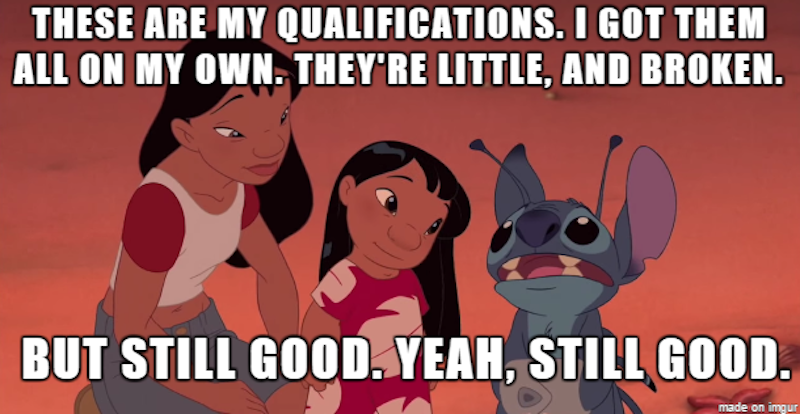Not only is Google rated the #1 place to work year after year, but it’s one of most valuable companies on earth. And that’s by no coincidence. To get there, Google spent years perfecting their employee perks to create a positive and highly-productive environment.

But Google has only been able to grow into a $360 billion company by trying bold new things and constantly iterating their systems—not by blindly applying the successful models of other companies.
To succeed as a startup, you also have to be careful not to just adopt trendy fads, but rather find what works best for you through constant iteration. In fact, there are tons of companies that do the opposite of what Google does and thrive as a result.
Here are some examples of super successful startups that refrained from Googlifying their environment.
Google’s emphasis on leisure
Google employees are free to take breaks any time they’d like. And Google has plenty of options for how an employee can have fun, from Lego stations, to scavenger hunts, to free yoga classes, to sleep pods. And while these are great employee perks, they’re not what make Google, Google.

Google prides itself on hiring self-motivated engineers. And because the company’s success depends on the ingenuity of these employees, Google emphasizes breaks to encourage creative thinking. The dangers of such environments—distracting employees from their work—isn’t something that Google has to worry about.
But startups take what they see on the outside, the fun laid-back environment, and assume that it explains Google’s incredible culture. So they stuff their office with lounge chairs and snacks, thinking it will be a quick fix for their company culture.
Give employees a vote, not a cookie
Nextiva CEO Yaniv Masjedi hit on the issue when he evaluated the employee perks of his own startup. In his office, they had to stop providing snacks for his employees, because they complained that their preferences weren’t taken into account.

So Masjedi did a massive culture pivot. He got rid of the free food and the other irrelevant perks, and started scheduling 20-minute employee interviews to get feedback on how they’re enjoying their work and how they feel about the culture.
As a result, morale went way up, and, based on the feedback, Nextiva improved its training programs. The CEO quickly realized that letting the employees have a say in how they do things had a much bigger effect on culture than yogurt and candy bars.
Google’s insane employee perks and benefits
Google’s great vacation packages, best-in-class health care, shuttles to work, and free laundry service makes for some really happy employees. And that net income of $16.35 billion certainly helps.
Many company founders want to mitigate the risk associated with joining a startup by offering generous benefits to new employees. While health insurance, paid time off, and disability is standard, many startups offer tons of equity, transportation, gym memberships, and even all-expenses paid travel on top of that.
But you don’t want employees that join your startup for the benefits, you want employees that join the startup because they believe in the product and share the company vision.
Not to mention, offering generous benefits before your startup has been around for three years lowers its chances of survival according to a study conducted by the Journal of Management.
Teamwork makes the dream work
Dashlane, a startup that made a password management app, doesn’t have any typical startup perks. No out-of-this world benefits, no flashy toys at the office, and no work-from home policy. If you walk into their SoHo office you’ll see a standard cubicle layout with average office furnishings.
CEO Emmanuel Schalit is rigid in his philosophy that he’d “rather spend [his] resources and money on things that are going to make [them] stronger as a team.” Instead of getting his employees laundry service, he gets them high-tech communication tools that keep them in better touch with the remote team.
He maintains that giving employees generous benefits gives them ulterior motives to stick around. And his employees aren’t complaining. In three years, the company has only lost one employee.
So before giving your employees tons of company equity and free meals, consider putting money into something that enforces company values.
Googlers’ impressive resumes
One of the few complaints that come from ex-Googlers is that they felt that they were overqualified for the job they did. And it makes sense, Google gets over one million applications a year—one every 25 seconds—so they can get the best engineers in the world to do any job at Google.
While startup hiring managers are often tempted to hire the best and brightest from any resumes that get on their desk, those folks are a hot commodity. Unless you can get your rock star employee to fall in love with your product, and do it fast, they’ll be snapped up with a bigger, more-tempting offer.
Enthusiasm beats out experience
Sujan Patel, CEO of digital marketing startup Single Grain, hires his employees based on his or her passion and hunger to learn.

His argument that, while skills are something that can be taught over time, passion is near-impossible to instill in an employee. In his experience, these employees are always on top of their game and striving to improve. And he’s not all talk. The company is considered a pioneer in digital marketing, and has grown to be a multi-million dollar business.
Interest in the job makes it a win-win. The employee gains the new skills and knowledge necessary to further their career, and the startup gets a faithful staff that can grow with the business.
Googlers’ total autonomy
While Google does have a hierarchical structure, employees still set their own goals and decide when and how they work. Googlers are given almost total autonomy and others only step in to help them achieve their goals if they start under-performing.
Google has a system in place in which employees have clearly defined roles. While this is a really great thing to strive toward, it’s not terribly realistic in young startups where employees often have to cover responsibilities that don’t fall under anyone’s job description. But the ability to take on extra tasks takes a lot of initiative, and, as the startup grows, things tend to fall through the cracks.
You should also check out Googler’s Critique of Google’s Performance Management Reviews which’ll help you understand how Google treats its employees.
Ownership is a powerful thing
Wistia, a video hosting startup, is a super successful company that ditched the trendy flat management structure. While they had no trouble managing their responsibilities when they were a team of five, once they grew to a team of 30, they found that the teams’ creativity and energy was compromised because of logistical issues.
Their solution was to delegate ownership over projects. CEO Chris Savage created a structure of teams and managers, all with very well-defined roles. The managers became responsible for delegating authority over any project. This removed unnecessary bottlenecks from the process in the same way a flat structure does, all while ensuring that nothing ever slips through cracks.
Thanks to constant process iterations, Wistia has grown to be a multi-million dollar startup with over 50,000 customers.
The Google Spirit
Too many startups look to Google’s employee perks as if they have the answer to everyone’s productivity problems. They take what they see on the outside—the ping pong tables, the flexible work hours, the incredible benefits—and apply it to their own business, assuming it will fix all their problems.
But what has always been remarkable about Google is their innovative solutions regarding their employee perks. They grew and wisely shaped their culture over time, never being afraid to do things differently than everyone else. By blindly applying Google’s productivity solutions to your own startup, you’re missing the Google point.
The reason startups like Wistia and Dashlane have not only survived, but thrived in the high-stakes tech community is because they knew when and if they should appropriate trendy start-up fads. By being true to your own vision for your company, you can find the right solution for your company without stealing Google’s.
